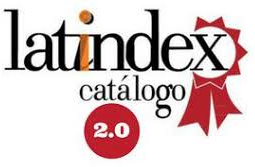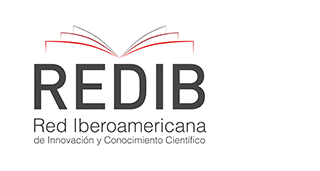Medición de la facilidad para hacer negocios. Índice doing business. / Measuring the ease of doing business.
DOI:
https://doi.org/10.37767/2468-9785(2020)003Palabras clave:
Estructura del mercado, Control gubernamental, Facilidad para hacer negocios, Economía regional, Competencia económica, Market structure, Doing-business index, Government control, Ease of doing business, Regional economy, Economic competition, Índice Doing BusinessResumen
El objetivo principal de este documento es exponer la conceptualización de una metodología para medir la facilidad de hacer negocios en economías nacionales y subnacionales, validada a nivel internacional y liderada por el Banco Mundial: el Índice Doing Business. La metodología está basada en análisis bibliométrico, a partir de la base de datos especializada Scopus, de donde se obtuvieron datos y documentos para evaluar niveles de citación, áreas temáticas relacionadas, y conceptos claves. En los resultados se hace una descripción del análisis bibliométrico y se identifican los principales conceptos y procedimientos que involucra la medición de la facilidad para hacer negocios. Se concluye que la medición del ambiente de negocios en los países resulta útil para identificar los mecanismos de regulación empresarial que más han funcionado, sirviendo como referencia para reformas en países en desarrollo, entre ellos Colombia. Particularmente en Colombia se mide la influencia de la regulación estatal en la creación y funcionamiento de empresas privadas, en el documento se presenta la posición actual del país.
ABSTRACT:
The main objective of this document is to present the conceptualization of a methodology to measure the ease of doing business in national and sub-national economies, validated at the international level and led by the World Bank, the Doing Business index. The methodology is based on bibliometric analysis, from the specialized Scopus database, from which data and documents were obtained to evaluate levels of citation, related subject areas, and key concepts. In the results, a description of the bibliometric analysis is made and the main concepts and procedures that are involved in measuring the ease of doing business are identified. It is concluded that the measurement of the business environment in the countries is useful to identify the business regulation mechanisms that have worked the most, serving as a reference for reforms in developing countries, including Colombia. Particularly in Colombia, the influence of state regulation on the creation and operation of private companies is measured. The document presents the current position of the country.
Referencias
Banco Mundial. (2019). DOINGBUSINESS - Acerca de Doing Business. Obtenido de https://espanol.doingbusiness.org/es/about-us
Banco Mundial. (2020). DOINGBUSINESS Metodología. Obtenido de https://espanol.doingbusiness.org/es/methodology
Banco Mundial. (2020). DOINGBUSINESS Midiendo regulaciones para hacer negocios. https://espanol.doingbusiness.org/es/doingbusiness
Borissova, D., Korsemov, D., & Mustakerov, I. (2019). Multicriteria decision making problem for doing business: comparison between approaches of individual and group decision making. In IFIP International Conference on Computer Information Systems and Industrial Management (pp. 385-396). Springer, Cham.
Estevão, J., Lopes, J. D., Penela, D., & Soares, J. M. (2020). The Doing Business ranking and the GDP. A qualitative study. Journal of Business Research, 115, 435-442.
Groşanu, A., Boţa-Avram, C., Răchişan, P.R., Vesselinov, R., Tiron-Tudor, A. (2015). The influence of country-level governance on business environment and entrepreneurship: A global perspective.
Merry, S.E., Davis, K.E., Kingsbury, B. (2015). “The quiet power of indicators: Measuring governance, corruption, and rule of law”. pp. 1-358
Ruiz, F., Cabello, J. M., & Pérez-Gladish, B. (2018). Building Ease-of-Doing-Business synthetic indicators using a double reference point approach. Technological Forecasting and Social Change, 131, 130-140.










